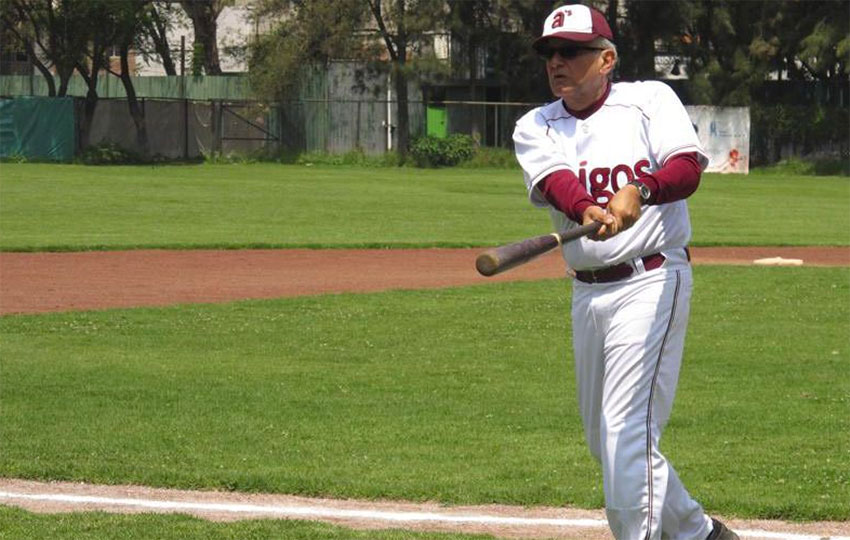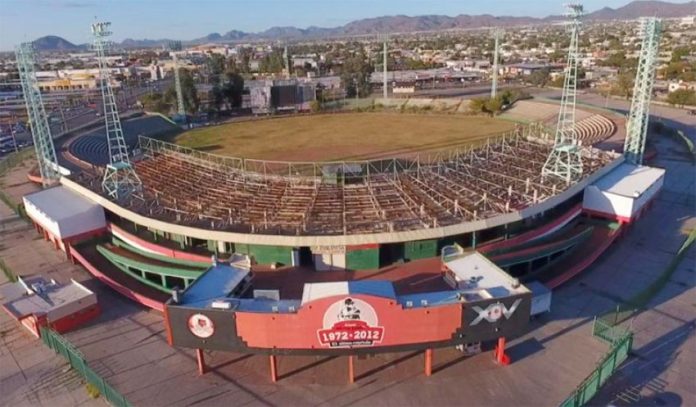The federal government will pay the state of Sonora more than 1 billion pesos to purchase two stadiums that will become baseball schools.
President López Obrador announced this week that the Secretariat of Finance will release funds for the purchases, adding that state development bank Banobras will also provide financial support.
According to a report published by news website Animal Político, the purchase of the Héctor Espino stadium in Hermosillo and the Tomás Oroz Gaytán stadium in Ciudad Obregón will cost 1.057 billion pesos (US $54.7 million).
López Obrador said the federal government has advised its counterpart in Sonora to use the funds to pay workers’ pensions.
The baseball schools that the government plans to build will also offer regular middle school and high school classes.

“. . . The stadiums are very well located, facilities will be built, a good project will be carried out in each one of them,” the president said.
López Obrador, whose favorite sport is baseball, added that the private sector will be invited to participate in the projects at some point in the future, explaining that the construction of hotels and shopping centers in the stadium precincts is under consideration.
Sonora Governor Claudia Pavlovich thanked the president for the government’s purchase of the stadiums, observing that the state government doesn’t have the resources to rehabilitate them.
However, critics quickly claimed that the outlay is incongruent with the government’s austerity measures and questioned López Obrador’s priorities.
“. . . There are no resources for syringes, gauzes, medicines, doctors, nurses, [medical] evaluations, police, postgraduate scholarships, science, culture or research centers, but for the president’s favorite sport: the Finance Secretariat will release 1 billion pesos . . .” Denise Dresser, a political scientist and columnist, wrote on Twitter.
In addition to pointing to budget shortfalls in healthcare and science, scores of social media users complained that such a large quantity of money was going to baseball when funding for daycare centers has been slashed.
The stadium outlay is not far short of the 1.7 billion pesos in funding allocated this year to the National Sports Commission (Conade), whose budget was chopped from the approximately 7 billion pesos it received annually during the last six years.
Conade argues that the funding is insufficient and this week shut down its drug testing laboratory.
“The closure of the laboratory is more than anything due to the cost of maintaining it,” said Conade chief Ana Gabriela Guevara.
She added that establishing the laboratory within Conade was a mistake because it made it appear as though the commission was involved in the drug-testing process when in fact it was not.
“Even though the World Anti-Doping Agency requests that there be no intervention on the part of the government inside the laboratory, in the end we’re linked [to the results],” Guevara said.
Announcing last month that she had become a citizen of Uzbekistan and would no longer represent Mexico, fencer Paola Pliego slammed Conade for not supporting her after she tested positive for the banned substance modafinil in the lead-up to the 2016 Olympics.
It was later revealed that the test carried out by a Conade laboratory had mistakenly shown that Pliego had taken the banned drug when in fact she had not.
Source: Animal Político (sp), El Universal (sp), Aristegui Noticias (sp)
